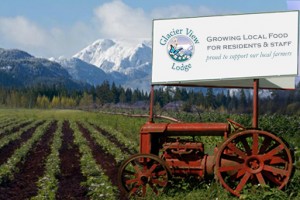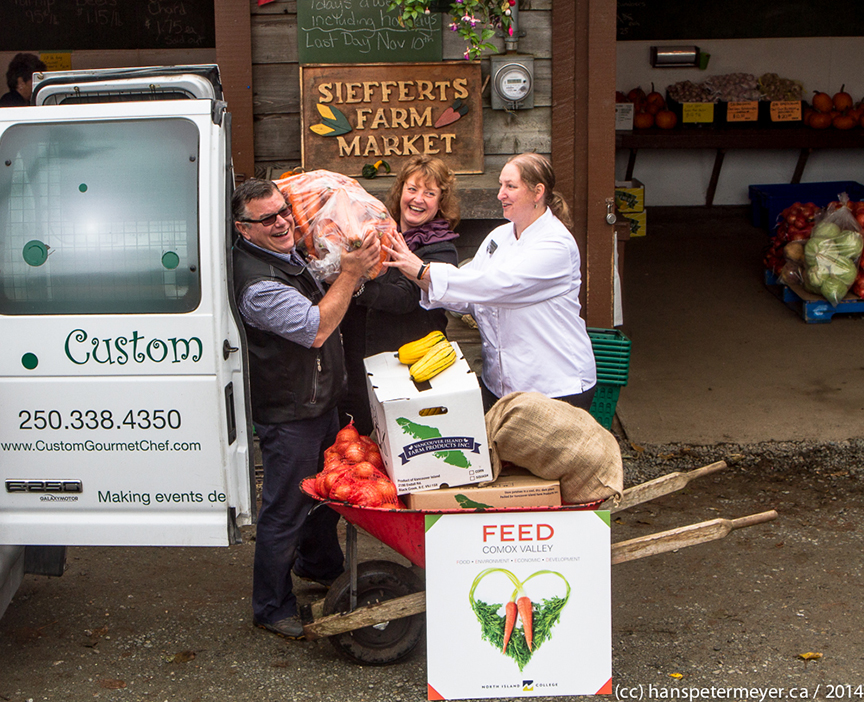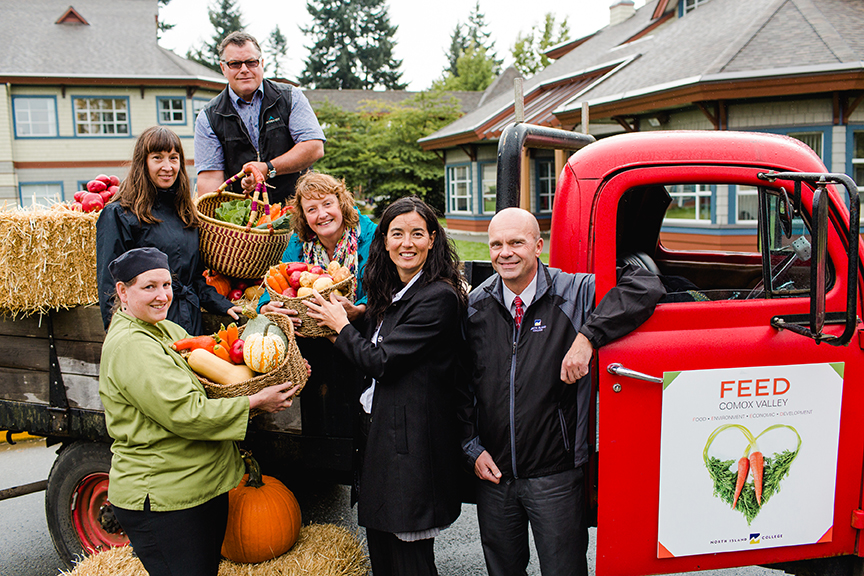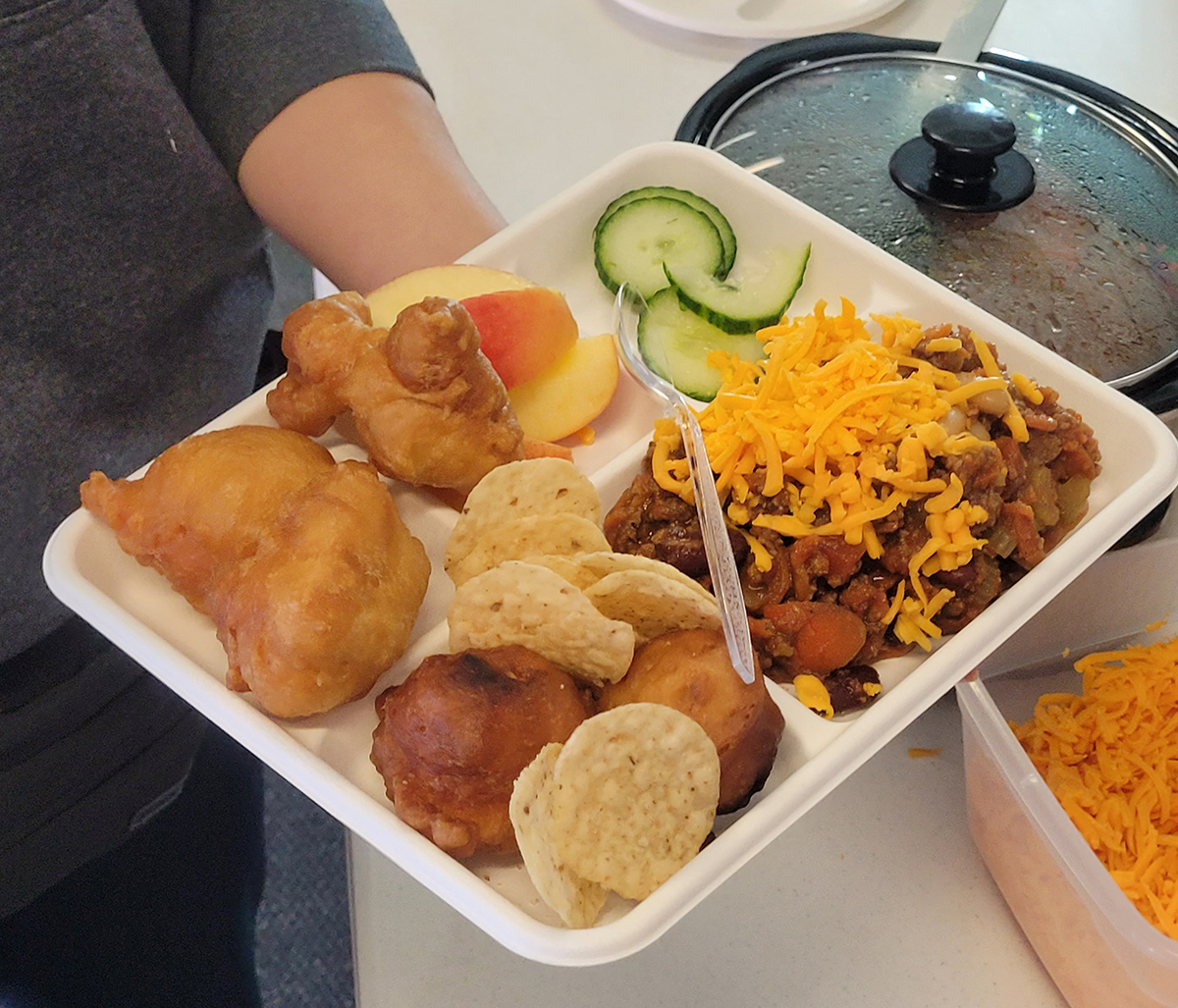Local farm vegetables supplied directly to college, hospital, and seniors’ homes
1 June, 2015
FOR IMMEDIATE RELEASE
MR15-033
 Comox Valley, B.C. Last Friday, as Washington state Gov. Jay Inslee, joined California in declaring a statewide drought emergency, St Joseph’s General Hospital in Comox, B.C. joined a pilot program to source vegetables locally.
Comox Valley, B.C. Last Friday, as Washington state Gov. Jay Inslee, joined California in declaring a statewide drought emergency, St Joseph’s General Hospital in Comox, B.C. joined a pilot program to source vegetables locally.
“For the first time in many years, patients, students and long-term care residents will be served a selection of farm fresh produce, within 24 hours of harvesting,” said Sandra Hamilton, Project Lead, FEED Comox Valley, at North Island College.
“For over 100 years our values have been deeply rooted in serving the community. FEED Comox Valley is helping us build relationships with food producers in the Comox Valley.” – Jane Murphy, CEO, St. Joseph’s General Hospital
Food, Environment and Economic Development (FEED) Comox Valley is one of eight J.W. McConnell Family Foundation projects to increase the supply of local food in public institutions across Canada. The pilot project started six months ago at NIC’s Comox Valley campus and has grown to include St. Joseph’s General Hospital and Glacier View Lodge this summer.
“Farm direct models, like FEED, provide fresh produce to NIC and health care facilities while supporting fair prices and stable markets for B.C. farmers,” said NIC President John Bowman. “This is just one of the ways NIC’s Centre for Applied Research, Technology and Innovation can help local farmers, businesses, and economies grow.”
The project is timely. Washington’s Department of Agriculture is already projecting a $1.2 billion drought-related crop loss this year. Low-value staples such as broccoli and lettuce will be lost as precious water resources are re-directed to higher value crops, such as cherries and grapes.
Droughts, combined with an unfavourable U.S. exchange rate, threaten the resiliency of U.S. dependant supply chains; however, they also make it increasingly viable for B.C. vegetable farmers to support the institutional food market.
In October 2014, Brent Mansfield, Director of the BC Food Systems Network, highlighted B.C.’s increasing reliance on the United States, especially California, over the past 20-25 years in a report titled, Wake-Up Call: California Drought & B.C.’s Food Security, written for Vancity Credit Union.
The report found:
- B.C. food production levels have decreased for a variety of crops; the overall vegetable crop production area fell by 20.4 per cent between 1991 and 2011, with much more significant decreases in several staple crops.
- The United States supplies 67 per cent of B.C.’s imported vegetables and 44 per cent of imported fruits, over half of which is from California, including 95 per cent of B.C.’s imported broccoli and 74 per cent of imported lettuce.
- In 2014, B.C. produce prices increased between 5.7 and 9.6 per cent. If these trends continue for the next five years, price increases of 25 to 50 per cent are predicted for many fruits and vegetables.
Mansfield hopes food security initiatives, such as FEED Comox Valley, will expand to other BC communities.

“FEED Comox Valley demonstrates local food can supply public institutions. It has the potential to offer stability to local farmers, making it increasingly viable for the next generation to continue in agriculture.”
The model gives small farm businesses the opportunity to bid on food supply contracts at taxpayer funded institutions. It also aligns with the spirit of the B.C. Government’s Small Business Accord, aimed at improving small business access to government contracts.
Food is grown locally and distributed by Vancouver Island Farm Products Ltd., a group of Vancouver Island farmers passionate about feeding local residents island-grown food.
The Comox Valley Regional District (CVRD) provided $50,000 in matching funds from the federal Gas Tax Fund, allocated to all local governments. Money came through the CVRD’s Community Works Fund for Lazo North (Area B).
For more information about the project, visit www.nic.bc.ca/FEED. To find out how your institution could access more local food, contact Sandra Hamilton at 250-890-9386 or email sandra.hamilton@nic.bc.ca.
Media Contact:
BC Food Systems Network
Brent Mansfield, Director
604-837-7667
director@bcfsn.org
North Island College
Christiana Wiens, Development Writer,
O. 250-334-5280 M. 250-218-4097
christiana.wiens@nic.bc.ca
BACKGROUNDER
FEED Comox Valley
NIC’s Food, Environment and Economic Development (FEED) Comox Valley is part of a national initiative, funded by the J.W. McConnell Family Foundation, working to increase the supply of local food to institutions across Canada. The project also seeks to better leverage B.C. taxpayer dollars to improve social, environmental and economic benefits for the local community.
BC Food Systems Network
The BCFSN works to create healthy, just and sustainable food systems in British Columbia through capacity building and policy engagement. The BCFSN has been working in partnership with farmers, ranchers, fishers, First Nations and people in communities across BC since 1999. The network builds awareness, educates and develops balanced policy proposals that adhere to sustainability principles and reflect the needs and interests of a wide range of stakeholders.
North Island College’s Centre for Applied Research, Technology and Innovation (CARTI)
CARTI helps businesses and communities harness the power of faculty experts, creative students and research funding.
With the help of federally funded experts and industry partners, CARTI is developing new technology and aquaculture monitoring techniques, improving health care delivery methods, designing innovative bottling techniques for the wine industry and connecting local food producers to public institutions.
The J.W. McConnell Family Foundation
The J.W. McConnell Family Foundation is a private family foundation, based in Montreal, which engages Canadians in building a more innovative, inclusive, sustainable and resilient society.
The Institutional Food Program, part of the Foundation’s Sustainable Food Systems initiative, seeks to increase the supply of fresh, local and sustainable food in public institutions in Canada, prompting supply chain shifts towards more sustainable food systems. The Foundation is partnering on this program with Food Secure Canada, who provide Institutional Food Fund recipients with technical support and coordinating a learning group.
The Foundation received applications to the Institutional Food Program from institutions with strong measures of readiness to change their procurement practices and supply chain relationships Nevertheless, selected projects include institutions from the post-secondary, public school and health sectors from across Canada.
Work with individual institutions is complemented by government and private sector engagement and communications to create a shared agenda for more sustainable institutional food.





